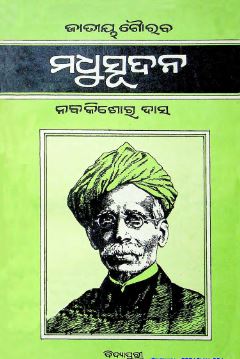In the landscape of Indian literature, biographies often stand as intricate tapestries that weave together the lives, struggles, and triumphs of remarkable individuals. One such unique work is “Jatiya Gourab Madhusudan,” penned by the esteemed author Nabakisor Das and published in 1995. This biography delves into the life and legacy of Madhusudan Das, a stalwart of Odisha who played a pivotal role in the cultural renaissance and political awakening of the state.
Madhusudan Das (1848-1934), fondly known as “Utkal Gourab” (Pride of Odisha), was a visionary leader whose contributions spanned across various domains. He was not just a prominent lawyer but also a fervent activist in the movement for Odisha’s linguistic and cultural identity. In a time when Odisha was fragmented and overshadowed by larger political currents, Das emerged as a beacon of hope, advocating for the rights and recognition of Odias everywhere.
His relentless dedication to revitalizing the Odia language and promoting the cultural heritage of Odisha culminated in the establishment of the Utkal Union Conference in 1903, which subsequently laid the foundation for the formation of an autonomous Odisha province. This book captures his journey, showcasing how he navigated through the socio-political landscape of colonial India with unmatched determination and resilience.
In “Jatiya Gourab Madhusudan,” Nabakisor Das adopts a meticulous approach to chronicle Madhusudan Das’s life. The biography is divided into several chapters that explore different phases of his life, from his early years in a small village in Odisha to his education in Calcutta and his eventual return to advocate for the rights of his people.
Each chapter is rich with anecdotes, quotes, and illustrations that provide not only biographical details but also contextual insights into the cultural and political milieu of Odisha. This structure allows readers to appreciate the evolution of Das as an individual and as a leader, making the narrative both informative and engaging.
The biography opens with a vivid portrayal of Madhusudan Das’s childhood in a modest family in the village of Khurda. Nabakisor Das emphasizes the significant role that his early influences played in shaping Das’s character. His father, a village school teacher, instilled in him a love for education, and his mother’s encouragement of arts and literature further fanned the flames of his creativity.
As a young man, Das’s quest for knowledge took him to Calcutta, where he faced not only the rigors of academic life but also the challenges posed by a society marred by colonial oppression. Here, he encountered a plethora of ideas that sparked his political consciousness and deepened his identification with his Odia roots.
One of the most compelling aspects of “Jatiya Gourab Madhusudan” is its focus on Das’s struggle for Odia identity. Nabakisor Das narrates how the language movement became a crucial part of his life’s work. At a time when the Odia language faced the threat of being overshadowed by Bengali and Hindi, Madhusudan Das rallied for its recognition as a distinct language deserving of dignity and status.
His efforts culminated in the establishment of the first Odia-language newspaper, “Utkal Dipika,” which played a vital role in educating the masses about their cultural heritage. This topic resonates deeply in the biography, emphasizing how Das’s literary endeavors were intricately linked to his political ambitions.
Nabakisor Das dedicates substantial sections of the biography to Madhusudan Das’s political activism. His role in the establishment of the Utkal Union Conference and later his participation in various movements that pushed for Odisha’s socioeconomic progress are highlighted.
The author doesn’t shy away from portraying the difficulties and oppositions faced by Das during his political career. The book narrates moments of disappointment and frustration, yet it also covers the remarkable successes that paved the way for future generations. Through his relentless pursuit of justice and equity, Das laid the groundwork for subsequent leaders to build upon.
The biography delves into the impact of his advocacy on Odia society and politics, portraying Madhusudan Das as a figure whose legacy transcends his time. His vision of a united and culturally confident Odisha continued to inspire many even after his passing in 1934.
Nabakisor Das’s writing style in “Jatiya Gourab Madhusudan” is engaging and accessible, making it suitable for a wide audience. His use of Odia idioms, folklore, and cultural references enriches the narrative, allowing readers to connect more profoundly with the subject matter. This blend of scholarly research and heartfelt narration makes for a gripping read that not only celebrates Das’s life but also reflects the socio-political essence of Odisha.
Books Info
| Books name | Jatiya Gourab Madhusudan |
| Author | Nabakisor Das |
| No Of pages | 110 |
| Publisher | Vidyapuri |
| Publication | 1995 |
| Printed At | Behera Printers |
| Distributor | NA |

